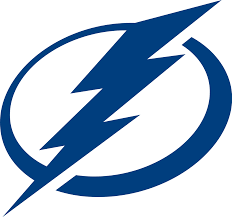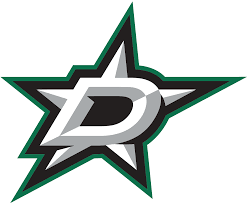2020-21 record 32-17-7, 71 points
4th in the MassMutual NHL East Division
Eliminated in the Stanley Cup Semifinal by Tampa
Additions: F Andy Andreoff, F Richard Panik (acquired from DET), F Zach Parise, D Paul LaDue, D Zdeno Chara
Subtractions: F Robert Carpenter (signed with Milwaukee Admirals, AHL), F Jordan Eberle (expansion, SEA), F Tanner Fritz (signed with Hartford Wolf Pack, AHL), F Joshua Ho-Sang (signed with Toronto Marlies, AHL), F Andrew Ladd (traded to ARI), F Travis Zajac (signed to one-day contract with NJD, retired), D Nick Leddy (traded to DET)
Still Unsigned: F Kieffer Bellows (RFA), F Michael Dal Colle (RFA), D Braydon Coburn, G Cory Schneider
Re-signed: F Cole Bardreau, F Anthony Beauvillier, F Casey Cizikas, F Otto Koivula, F Kyle Palmieri, F Dmytro Timashov, D Andy Greene, D Adam Pelech, G Ilya Sorokin
Offseason Analysis: It’s October and we still don’t really know who is and who isn’t under contract with the New York Islanders because Isles General Manager, Lou Lamoriello, plays by his own rules.
Well, not exactly like that, but he at least doesn’t like facial hair and won’t allow his players to sport a scruffy look. Not even a goatee (which bothers me as someone that looks much too young without sporting even a small patch of stubble on my chin to prove, in fact, that I am old enough to order a beer– let alone see an “R”-rated movie).
Anyway, Lamoriello has slowly been announcing– though never disclosing the financial terms– deals that have been signed by players like Zach Parise and Zdeno Chara, as well as extensions for Kyle Palmieri, Adam Pelech, Andy Greene and Ilya Sorokin.
Parise, 37, joins New York after amassing 393-417–810 totals in 1,060 career National Hockey League games for the New Jersey Devils and– most recently– the Minnesota Wild.
Last season with the Wild, he had 18 points (seven goals, 11 assists) in 45 games, which was a bit of a steep decline in his production from 2019-20, albeit in much more limited time as Minnesota head coach, Dean Evason, felt his team was better with Parise scratched from time to time.
New York head coach, Barry Trotz, on the other hand, thinks he can utilize Parise in the right amounts to maximize his value as a veteran of the league in search of his first Cup ring– let alone his first trip back to the Stanley Cup Final since 2012.
Chara, 44, reunites with the Islanders– the team that drafted him in the 3rd round (56th overall) in the 1996 NHL Draft prior to breaking into the league with the Isles in the 1997-98 season and spending parts of four seasons on Long Island before then-General Manager Mike Milbury traded him to the Ottawa Senators ahead of the 2001-02 season.
The long time veteran defender is entering his 24th season after amassing 207-459–666 totals in 1,608 games thus far with the Islanders, Senators, Boston Bruins and Washington Capitals. Chara was a member of the 2011 Stanley Cup champion Bruins roster and should pay dividends on the third pairing, as well as on the penalty kill, while Pelech and Ryan Pulock rest up for another long shift.
After being acquired ahead of last season’s deadline, Palmieri put up four points (two goals, two assists) in 17 games down the stretch with New York after amassing 8-9–17 totals with the Devils in 34 games prior in 2020-21.
In the 2021 Stanley Cup Playoffs, however, Palmieri found his scoring touch– notching seven goals and two assists (nine points) in 19 games en route to being eliminated by the Tampa Bay Lightning in seven games in the 2021 Stanley Cup Semifinal.
Lamoriello added more veterans to an already veteran infused lineup while presumably remaining tight against the salary cap.
Though New York had a bit of a bumpy ending to the regular season last year, they peaked at the right time to be one goal away from the franchise’s first Stanley Cup Final appearance since 1984.
As an organization that’s been on the rise with Trotz behind the bench, the Islanders are sure to be out with something to prove in the league’s return to a normal 82-game schedule format and everything.
Pelech’s eight-year extension worth $5.750 million per season at 27-years-old is Lamoriello’s greatest gift thus far to New York’s core as a good team friendly contract as Pulock enters a contract year in 2021-22 and Mathew Barzal carries two remaining years on his current deal.
Love him or hate him, Lamoriello also did a decent job keeping Casey Cizikas in line with more conventional thinking for a top-nine forward on a new six-year deal worth $2.500 million per season compared to his last contract, which was a five-year deal with a $3.350 million cap hit.
Generally speaking, first line forwards should be paid around $9.000 million, second liners between $4.000 to $6.000 million with third liners earning roughly $1.000 to $4.000 million and fourth liners taking home a cap hit between league minimum and $2.000 million per year at most.
Follow that logic and you’ll be able to spread some wealth around on short-term contracts among your replacement level players or sign long term deals at a decent cap hit that’s expendable if you run into performance issues or cap related casualties down the road.
Meanwhile, because of Lamoriello’s masterclass in contract negotiations this summer, Anthony Beauvillier got a three-year bridge deal at $4.150 million per season and Ilya Sorokin earned a three-year extension worth $4.000 million per season– keeping the Islanders competitive as Cup contenders for at least the next few years while balancing the growth and development of their core as they age into their prime.
Of course, everything comes with a price as Lamoriello shipped out Nick Leddy to the Detroit Red Wings in a trade on July 16th for Richard Panik and a 2021 2nd round pick (originally from Edmonton, via Detroit- 52nd overall, Aatu Raty).
Chara is 14 years Leddy’s senior, but Leddy’s $5.500 million cap hit was a roadblock in keeping the bulk of New York’s core together.
To save some additional funds for redistribution this summer, the Islanders dealt Andrew Ladd, a 2021 2nd round pick (originally from Colorado via the Islanders, 60th overall- Janis Jerome Moser), as well as a conditional 2022 2nd round pick and a conditional 2023 3rd round pick to the Arizona Coyotes for future considerations.
Arizona took on Ladd’s entire $5.500 million cap hit through the 2022-23 season.
Offseason Grade: B
For what needed to be done to protect the integrity of the Islanders as a Cup contender in the next few seasons (at least), Lamoriello made proper efforts to add without subtracting, while balancing the books in an efficient manner.
There’s a lot to like about the respectable bridge contracts, but Pelech’s eight-year extension is a home run for what is otherwise New York’s cornerstone on defense with Pulock due for a bit of a pay raise next summer.
That said, it wouldn’t surprise me to see the Isles off their game by just a little as the long runs into the third round of the Stanley Cup Playoffs in 2020 and 2021 take a toll on a team in every sense of the imagination.
New York won’t need to hit “reset”, but rather “refresh” as they should comfortably reach the 2022 Stanley Cup Playoffs, but as for how far they go depends on if they can stay healthy and focused– especially with UBS Arena set to open in November, thereby giving the Islanders a long 13-game road streak to start the 2021-22 regular season.
If they don’t win it all in 2022, they should be primed for a bounce-back in 2023, with their best chance at a Cup since their dynasty in the 1980s.












You must be logged in to post a comment.